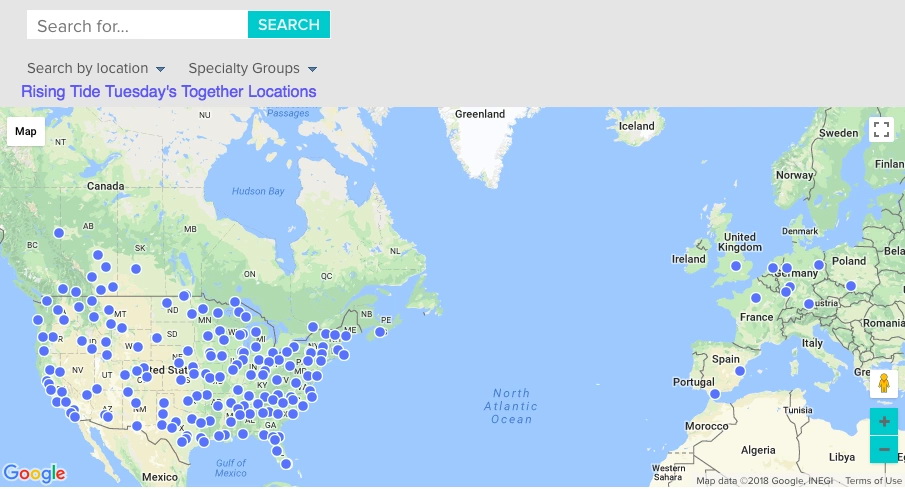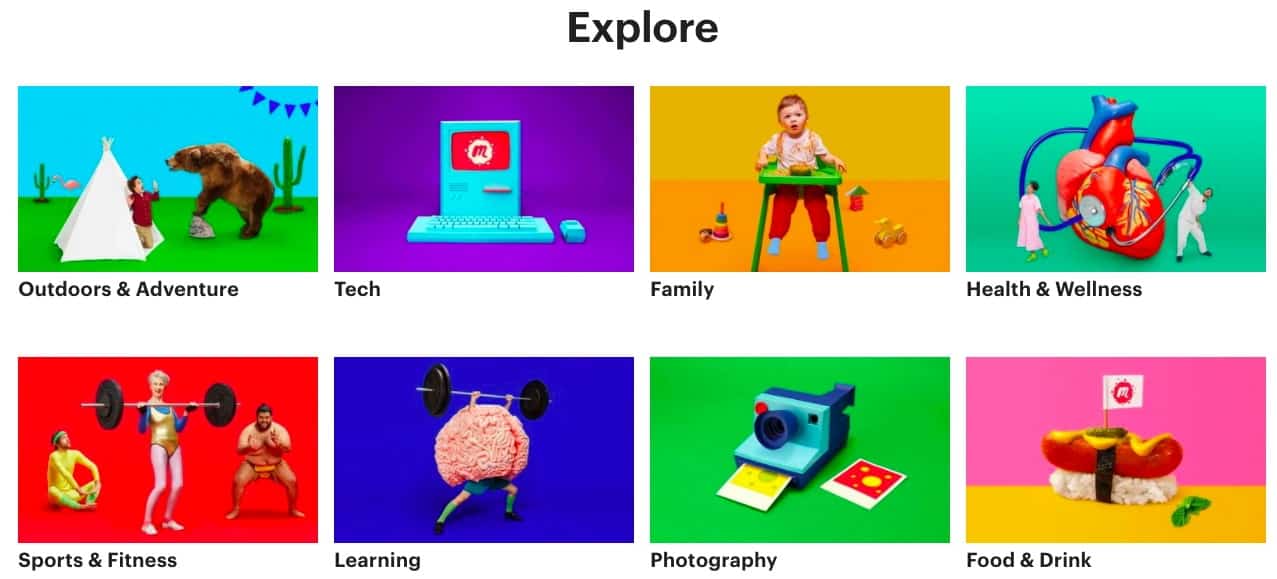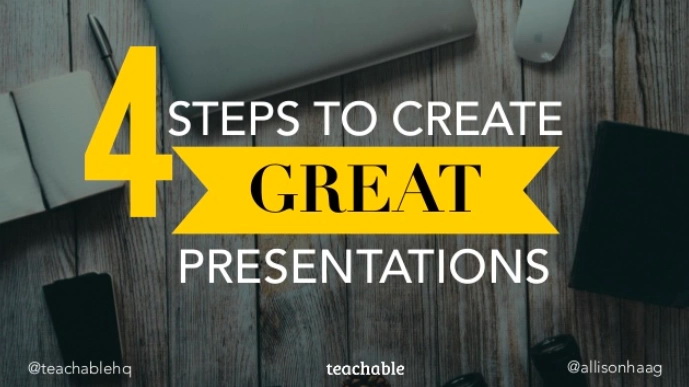How to build authority and grow your audience by speaking at events


Building authority in your niche can be difficult, especially when you’re just starting out. There’s a lot of noise online, so it’s up to you to make sure you stand out. One way to do so is to grow audience by event speaking. Get in front of people in person and appeal to them. More often than not, people are going to remember seeing someone give a speech in person more than they’ll remember one of the dozen webinars they watch in a month. Finding conferences or events to speak at, though, or even coming up with what to speak about can be a major roadblock.
Finding the confidence to speak in front of a crowd
Let us get one thing out of the way right away: If you’re waiting for a wave of braveness to wash over you before you start speaking in front of an audience, you may as well just keep waiting.
The only thing we’ve found that makes speaking to a crowd easier is experience. The more you do it, the less intimidating it’ll be. You can start small and work up to larger events, or just seize the day and aim for the biggest audience possible straight away.
It’s all about starting
Take our writer Morgan Timm for instance:
“The first time I ever spoke at an event, I was talking in front of my local PR network sharing how I built my blog in college. It was a small event, maybe 30 people, and I had no goal or agenda going in and I thought I did great. Call it beginners luck, but I didn’t stutter or stammer and handled the questions as best as I could. The only problem was I gave the audience no call to action or way to follow me afterwards.
And then my second event I spoke at was a little more intimidating. There were three times as many people in the audience, I wanted to convert them and get them to follow me, and I had to create a set presentation rather than a casual talk and Q&A. After the second event, I thought I did terribly. I was anxious and I hesitated on every third word and at one point I locked eyes with someone in the audience and got so nervous I just froze. In short, it was a mess.
But for some reason, it resonated with people. After the event I had people come up to me and ask more questions, and I got a handful of new followers and email subscribers.The reason I’m telling you all of this is because I learned that it’s OK to be nervous and even stutter through your presentation. It makes you real to people and they’ll be more likely to relate to you. So even if you feel like you’re not a natural or that speaking in front of audiences isn’t for you, you might surprise yourself.And even if you think that you did terribly, the audience just might love it.”
How to find events to speak at
Here’s where you can really run into trouble. If you’re not in a large city, it might be a bit difficult to find conferences or events near you. If you’re not willing to travel, consider looking into:
-
The Rising Tide Society. On the second Tuesday of every month, the Rising Tide Society hosts “Tuesdays Together” events all across the world. I’ve lived in three different areas since starting my blog, and all three have had local chapters of the Rising Tide Society. You can find your local chapter here.Each month has a different theme, so if you’re an expert on any of the month’s themes, consider emailing your local leader asking if you could lead a session and give a talk about your experience and offer value to the other members.


Your local co-working space
Co-working spaces are popping up all around the country. If you’ve got a co-working space, they may let you use their space for free if you can draw people in to listen to your presentation. Many local co-working spaces let you host free events and even pass out free co-working coupons so they can hopefully convert your audience into their customers. It’s a win-win.


Find coworking spaces near you on CoWorker.
-
Your local library. Libraries are also a great place to turn to because many library patrons are already primed and ready to learn. If your library has meeting space, consider reaching out and asking if you could host an educational talk there.
-
PR Networks and Clubs. If your community has a PR network, email them and ask for an upcoming list of events. If there are any that are relevant to your niche or expertise, ask if they need an expert to speak.
-
Meetup is a great place to find people interested in your niche. MeetUp is a website where people can organize meetups around…anything. From bird watching to jazz dancing and everything in between, you can find people with just about any interest. If all else fails, create a meetup where people interested in your niche can gather. At the beginning of the meetup, you can give an informative presentation, and the second half can be networking.


If you’re willing to travel…
If you have the desire and funds to travel, there really is no limitation on who you can reach out to. Don’t go overboard, though. Your number one question when pitching different events should be, “Will my target audience be there?”
If you’re going to spend time and money traveling to an event, you want to get a solid return for your efforts.
Broadening your pitching
If you’re able to travel, broaden your pitching to:
-
Conferences relevant to your niche. Conferences are the classic when people think about speaking at events. Conferences are essentially gatherings of people who all have a similar interest and want to hear experts give their opinion on ideas related to that interest.Getting started, you can go to All Conferences, or just Google “_________ conferences in 2018” to find conferences in your niche.
-
Retreats are a great place to build trust with your target audience. Much like conferences, retreats bring communities together around a similar topic. Usually, though, retreats also have a self-care element to them and speakers and presenters spend more time with their audiences.
How to host your own event to speak at
If you’re struggling to find the perfect event to speak at, you can consider hosting your own. Sure, it might be a lot more effort, but the potential in hosting your own event is great. It could spiral into a huge yearly tradition if it goes well (and that’s what you want) and it’ll certainly earn you clout in your field.
Getting a space
The first thing to consider when hosting your event is where are you going to host it? You’ve got to consider a few different things here:
-
How many people do you anticipate coming? If it’s more than a dozen or so you’ll need a dedicated space rather than meeting at a cafe or coffee shop.
-
Are you charging people to come? If so, you won’t be able to host it in your own home without proper licensing, and you can’t host it in public spaces, either.
-
Are you going to have other speakers? Usually at events there are “speaker lounges” where people can prepare and shake off their jitters before their speeches.
Venues are more common than you think
Once you’ve considered those points, make a short list of potential venues. Here’s what yours might look like:
-
The library
-
A local co-working space
-
A party room at the Pizza shop
-
My buddy’s warehouse
-
A hotel
-
My office after hours
From there, reach out to each place on your list to see if it’s possible to host events there, what the costs would be, and what your limitations are.
For example, you may be imagining a cocktail hour after your speech, but depending on the state, different licensing will be needed to make that happen. If the space doesn’t have the right licensing, you’ll have to reconsider.
Advertising your event
The possibilities here are endless, but given that your event is hyper local unlike a webinar or online summit, start locally.
See if it’s something your news station would run a segment on or your newspaper would print. Let any local groups you’re in know what’s going on, and create an invite of Facebook and encourage your friends to share.
For local events that are happening for the first time ever, word of mouth and built up excitement are essential.
From there, broaden your efforts and turn to things like Facebook and Instagram ads targeted to people in your community, email local businesses related to the theme of your event and see if they’ll share, and post your event on MeetUp.
Decide if you’re selling seats or giving them away
Depending on your goals, you may be charging for access to your event. That adds an extra barrier to entry for your potential attendees, but if you anticipate a high interest in your event it might be worth adding that barrier.
If you have to pay for your space, consider charging enough to cover what you’re spending. You could also consider donating all of the profits to charity to make people feel great about going to your event.
Crafting your presentation
We’ve found that it’s far more intimidating to speak in front of real life people than it is to go on video or a live stream. That’s why it’s important to go in with a plan and plenty of practice.
The way you craft your presentation will actually be a lot like the course creation process. If you’re already a course creator, consider pulling from materials that you’ve already created. Be sure to use them at your event.
Repurposing is great because it saves you time. Also, it’s more comfortable to repeat information that you’re already well acquainted with and have presented before.


If you’re creating a visual presentation, steal our tips here!
Choosing your topic
When you’ve only got a set amount of time with your audience, pinpoint a specific, single pain point that your audience might be having. Don’t try to create a comprehensive lesson covering your entire niche. There’s no way you can do that in an hour.
Your goal here is to make sure that your audience walks away from your talk feeling excited and inspired. Get them thinking about your topic in a way they hadn’t before.
If your conference is on gardening, for example, create a presentation on keeping an indoor herb garden alive. That’s something you should be able to cover in an hour. On the other hand, a presentation about herb gardening in general is too broad. There’s too much to cover for your audience to feel like there was a real, robust take away.
How to present with confidence
The most important and cliched thing we can say here is practice, practice, practice. The more you say your presentation, the more natural it’ll come. You never want to read your presentation word for word. It can make it feel awkward and unrehearsed. Of course, it also helps to speak on a topic that you’re confident in.
Here are our favorite tips for speaking in front of an audience:
-
Don’t lock eyes with anyone in the audience, instead sweep your gaze over the top of people’s heads
-
Focus on not speaking too quickly.
-
If you mess up, don’t get flustered, take a second or two to regroup and then pick up where you left off without acknowledging that you fumbled over your words.
-
If you’re nervous – admit that. It makes you relatable.
-
Try to get your audience to laugh in the first few minutes—it’s easier to feel like you’ve won them over if you can get them laughing.
Get people to follow you after the event
Of course, you’ll want to convert your audience to your followers by the end of the event, otherwise, there likely won’t be a huge return on your efforts.
The best way you can get people to follow you is by incentivizing them. At the end of your presentation, let them know that your slides are available for free. You can even mention a free resource they can get. If your website doesn’t have a memorable name, you can make a customized bit.ly link to something that will be easy to remember.
You can also turn it into a giveaway. Encourage the audience to pull out their phones *right now* and follow you on your email list or social media. Tell them that at the end of your presentation, you’ll pick five of your new followers to win something exciting.
It only takes a few simple steps to make a difference for your business. Get started with our free “seven steps checklist” today, so you don’t miss a beat.
